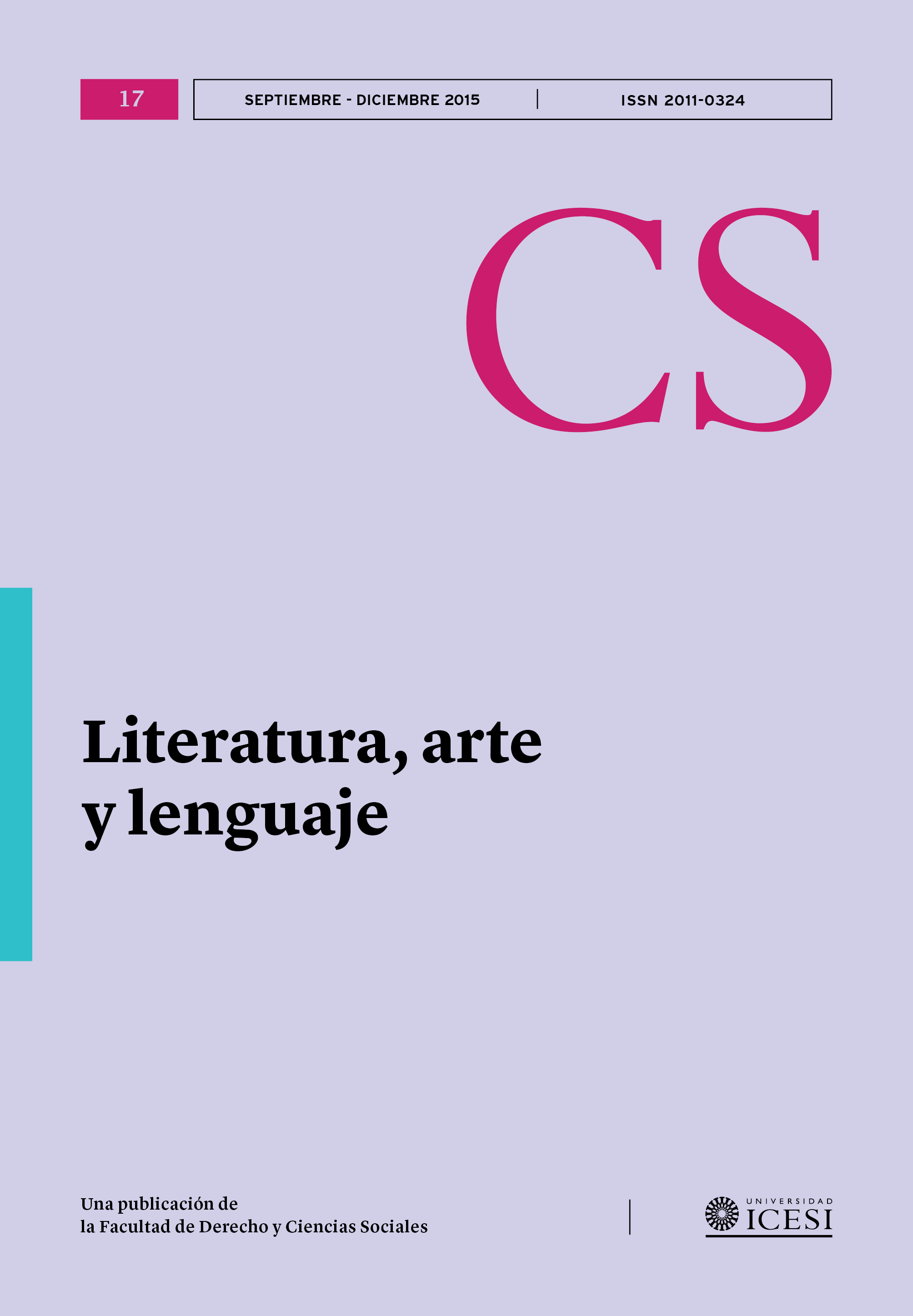El arte como conciencia de la desolación. Dictadura y destino latinoamericano
DOI:
https://doi.org/10.18046/recs.i17.2055Palabras clave:
Política, Dictadura, Democracia, LatinoaméricaResumen
Ante la insistencia del mal, la literatura se constituye en discurso sobrecogedor que permea críticamente los diversos diálogos que circulan en la sociedad, adquiriendo, más allá de su naturaleza estética, una dimensión política como forma de la reparación de la conciencia y liberación del ser frente a las turbulencias sociales. Y ante los totalitarismos de izquierda y de derecha en los que las palabras desaparecidos y tortura adquieren un sentido político, definiendo a su vez los contornos de un nuevo Leviatán, la democracia sigue siendo el sistema de gobierno que permite el desarrollo de la libertad del hombre. En esta doble perspectiva, surge en nuestra reflexión la figura de un Ernesto Sabato humanista, en sus ensayos y en sus novelas, quien cree en la democracia como sistema político en donde es posible que la criatura humana logre desarrollar sus potencialidades creadoras y adquiera la categoría de persona. Con el informe Nunca Más o Informe Sabato, se cristalizan en 50.000 páginas la denuncia que de la condición humana hiciera el creador de ficciones en su Informe sobre ciegos. En sendos informes se nos revela la exploración que hace el artista del problema del mal -que se constituye en el gran proyecto ético y estético del artista como vidente en la perspectiva de la búsqueda de la identidad del hombre argentino-, y de allí surge un Sabato político y esteta que logra definir muy bien su esencia como artista y como hombre de acción. En dichos textos surgen los avatares del hombre latinoamericano desde la historia escondida, desde el dolor y las voces de la marginalidad.
Descargas
Referencias
Bradbury, R. (2002). El hombre ilustrado. Barcelona: Minotauro.
Choderlos de Laclos, P. (2008). Amistades peligrosas. Barcelona: Mondadori.
CONADEP (1984). Nunca Más. Informe de la Comisión Nacional sobre la Desaparición de Personas. Buenos Aires: Eudeba
Dostoievski, F. (1983). Memorias del subsuelo. Barcelona: Bruguera.
Hamburger, K. (1995). La lógica de la literatura. Madrid: Visor.
Kundera, M. (2000). El libro de la risa y el olvido. Barcelona: Seix Barral.
ROSENBLATT, L. (2002). La literatura como exploración. México: Fondo de Cultura Económica.
Sabato, E. (1963). El escritor y sus fantasmas. Barcelona: Seix Barral.
Sabato, E. (1970). Uno y el universo. Barcelona: Seix Barral.
Sabato, E. (1979). Apologías y rechazos. Barcelona: Seix Barral.
Sabato, E. (1980). Hombres y engranajes, Heterodoxia. Madrid: Alianza.
Sabato, E. (1989). Entre la letra y la sangre. Bogotá: Planeta.
Sabato, E. (1990). Sobre héroes y tumbas. Barcelona: Seix Barral, 1ª edición 1961.
Sabato, E. (1999). Antes del fin. Barcelona: Seix Barral.
Sarlo, B. (1995). Escenas de la vida posmoderna. Intelectuales, arte y videocultura en la Argentina. Buenos Aires: Ariel, Espasa Calpe.
Publicado
Número
Sección
Licencia
Derechos de autor 2015 William Marín Osorio

Esta obra está bajo una licencia internacional Creative Commons Atribución-NoComercial 4.0.
© Derechos reservados de autor
El material de esta publicación puede ser reproducido sin autorización, siempre y cuando se cite el título, el autor y la fuente institucional.
El contenido publicado en Revista CS se distribuye bajo la licencia Creative Commons BY-NC 4.0 Atribución/Reconocimiento-NoComercial 4.0 Internacional.
Usted es libre de:
Compartir — copiar y redistribuir el material en cualquier medio o formato.
Adaptar — remezclar, transformar y construir a partir del material.
Bajo los siguientes términos:
Atribución — Usted debe dar crédito de manera adecuada, brindar un enlace a la licencia, e indicar si se han realizado cambios. Puede hacerlo en cualquier forma razonable, pero no de forma tal que sugiera que usted o su uso tienen el apoyo de la licenciante.
NoComercial — Usted no puede hacer uso del material con propósitos comerciales.












